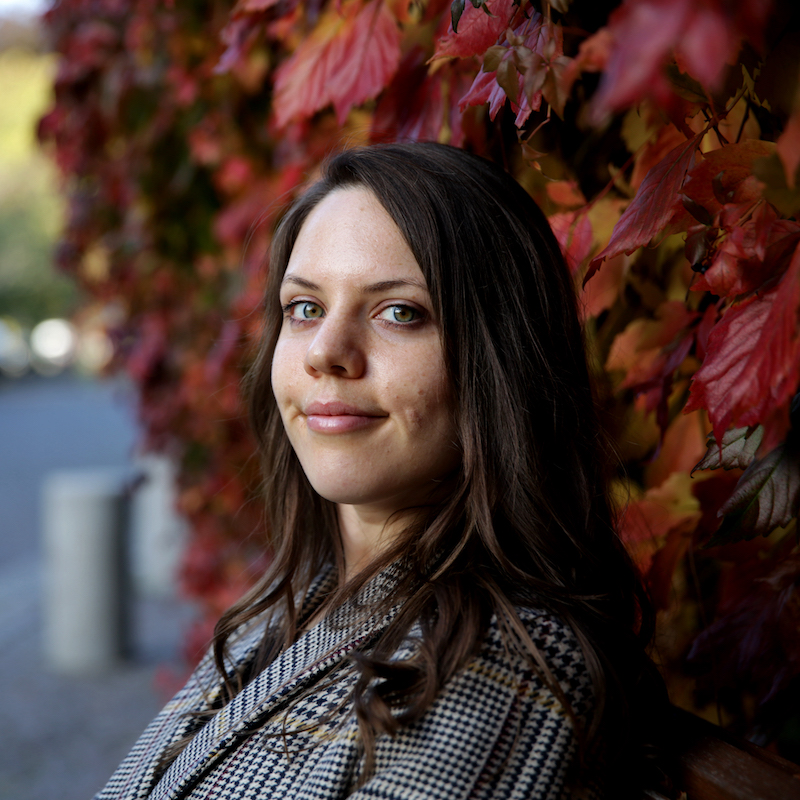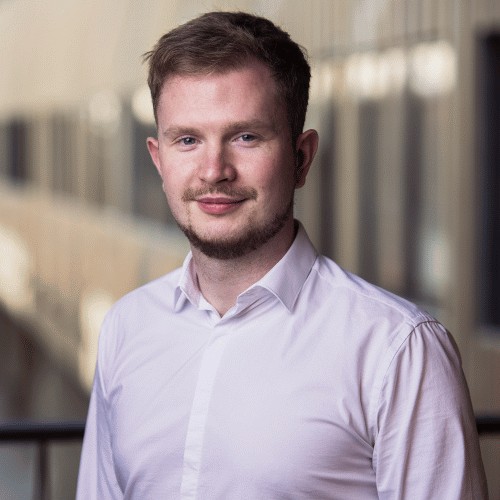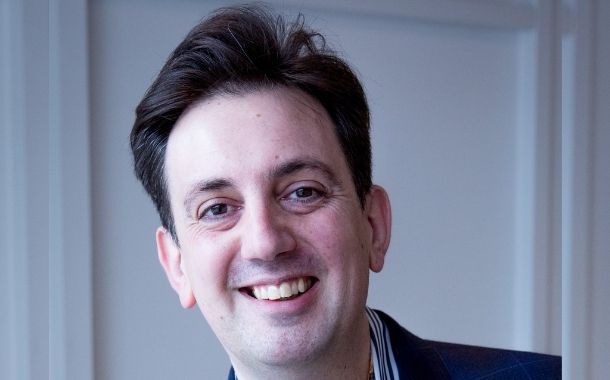Academic Lectures
We have invited several high-level experts and research leaders to give lectures and share knowledge with you. Here is a short overview of their background and abstracts.

Isabelle Augenstein, Dr. Scient., Ph.D. - Primer on Large Language Models: Capabilities, Limitations and Open Research Challenges
University of Copenhagen Homepage, Google Scholar
Abstract:
Natural language processing is currently experiencing a golden age, thanks to the emergence of chatbots powered by large pre-trained language models (LLMs), able to produce fluent and coherent responses to user input. This has resulted in a wealth of possibilities and enabled new downstream NLP applications. However, powerful as they might seem at a first glance, LLMs have a number of limitations — including being brittle to differences in prompts as well as opaque, producing factually incorrect output, and their limited cross-cultural understanding. In this talk, I will provide technical background on large language models, discuss their limitations, and illustrate how these can be addressed based on ongoing research in my research group. Lastly, I will point out open research challenges and possibilities for future academic NLP research.
Bio: Isabelle Augenstein is a Professor at the University of Copenhagen, Department of Computer Science, where she heads the Copenhagen Natural Language Understanding research group as well as the Natural Language Processing section. Her main research interests are fair and accountable NLP, including challenges such as explainability, factuality and bias detection. Prior to starting a faculty position, she was a postdoctoral researcher at University College London, and before that a PhD student at the University of Sheffield. In October 2022, Isabelle Augenstein became Denmark’s youngest ever female full professor. She currently holds a prestigious ERC Starting Grant on 'Explainable and Robust Automatic Fact Checking', as well as the Danish equivalent of that, a DFF Sapere Aude Research Leader fellowship on 'Learning to Explain Attitudes on Social Media’. She is a member of the Royal Danish Academy of Sciences and Letters and co-leads the Danish Pioneer Centre for AI.
Marco Zuñiga Zamalloa - Visible Light Communication and Sensing
Delft University of Technology Homepage, Google Scholar

Abstract: Nowadays, half of the world's population (along with billions of devices) connects to the Internet primarily using wireless technologies. Our demand for wireless communication is so high that the radio frequency spectrum is getting expensive and congested. To meet this demand for bandwidth, a new generation of devices uses the visible light spectrum to transmit data. This new paradigm is promising because the visible light spectrum is empty and free to use. In this course, you will explore the field of Visible Light Communication and Sensing (VLCS). You will learn about its history, current developments, and future opportunities. First, you will learn the main modulation techniques used to transmit data with light, so you could use that knowledge to create your own VLCS system. The course will also cover the latest research conducted on this topic at various universities worldwide.
Bio: Dr. Marco Zúñiga Zamalloa is an Associate Professor in Computer Science at TU Delft. His research interests are in the areas of the Internet of Things, Mobile Computing, and Visible Light Communication. He obtained his Ph.D. and MSc in Electrical Engineering from the University of Southern California, Los Angeles, and his BSc in Electronics Engineering from the Pontificia Universidad Católica del Perú.
Dr. Zúñiga has more than 70 scientific publications and has received three Best Paper Awards, five Best Paper Runner-ups, and an Accenture Innovation Award in 2017. Two of his publications are the 3rd and 16th most cited papers in the ACM Transactions on Sensor Networks. Dr. Zúñiga has also been invited to present his work on "Sunlight for wireless communication" at the Innovation Expo 2018, a flagship event organized by six Dutch Ministries to showcase Dutch innovation to the world.
Matthias Weidlich - Pattern Matching in Sequential Data: Query Models and Efficient Evaluation
Humboldt-Universität zu Berlin (HU). Homepage, Google Scholar

Abstract: Queries for pattern matching characterize the joint occurrence of specific elements in sequential data. Their evaluation enables the detection of situations of interest, thereby providing a foundation for context-aware applications in various domains.
In this session, we review query models for pattern matching, reaching from query languages in complex event processing to row pattern matching in SQL. Moreover, we outline how the definition of queries may be supported by discovery algorithms. Based on the observation that common query semantics impose computational challenges, we also review strategies for efficient query evaluation. This includes recent results on generic decomposition schemes for queries that facilitate distributed and parallel evaluation, as well as strategies for approximate query processing.
Bio: Matthias Weidlich is a full professor at the Department of Computer Science at Humboldt-Universität zu Berlin (HU Berlin), Germany, where he holds the Chair on Databases and Information Systems. Before joining HU Berlin, he held positions at Imperial College London and at the Technion - Israel Institute of Technology. He has a PhD in Computer Science from the Hasso-Plattner-Institute, University of Potsdam. His research focuses on data-driven process analysis, event stream processing, and exploratory data analysis. He serves as Co-Editor in Chief for the Information Systems journal and is a member of the steering committees of the ACM DEBS and BPM conference series.
Dmytro Fishman - AI in Biomedical Imaging: How Computer Scientists Contribute to Medicine
University of Tartu Homepage, Google Scholar

Abstract: This talk will cover research at the forefront of biomedical imaging data analysis, leveraging machine learning and deep learning to create state-of-the-art software solutions for diverse biomedical imaging modalities. Collaborating with academic institutions, private companies, and hospitals, we address a wide range of biomedical challenges. Our partnerships with Revvity have led to breakthroughs in microscopy image analysis, including a pioneering AI model for brightfield microscopy. In histopathology, our work with Estonian hospitals aims to automate and expedite pathology workflows, improving diagnostic accuracy and patient outcomes. Additionally, our AI research in medical imaging, in collaboration with a MedTech startup - Better Medicine, focuses on developing the General Purpose Medical AI (GPAI) system, which uses weakly supervised models to streamline radiological workflows and reduce the burden on radiologists.
Bio: Dmytro Fishman, PhD, is an Associate Professor of Artificial Intelligence at the Institute of Computer Science, University of Tartu. His research focuses on biomedical image analysis, machine learning, and AI applications in healthcare. He leads a research group developing deep-learning models for medical imaging, with a particular emphasis on diagnostic tools for oncology. In addition to his academic work, Dmytro is a Co-Founder and Chief Science Officer of Better Medicine, a med-tech company building AI-driven solutions for radiology.
Barry Norton - Lecture 1: Computer Vision and Its Application in the Security Industry
Milestone Systems , Google Scholar

Abstract: Based on a survey of the evolving state of the art in computer vision (CV), this talk will discuss the application of CV tasks in industrial R&D.
The basics of computer vision techniques will be discussed, including: classical computer vision, the re-emergence of artificial neural networks in the form of convolutional neural networks, recent applications of the transformer architecture, and the latest work in vision-language-models (VLMs), and their fine-tuning to real world scenarios.
Long-standing tasks like facial recognition and object detection and tracking will be described, and related to these ML advances, as well as more recent work in behaviour and anomaly detection.
Bio: Barry Norton is a Fellow at Milestone Systems, a Danish subsidiary of Canon inc. He holds a PhD in Computer Science, a master’s degree in Creative Writing and a bachelor’s in Software Engineering.
He has worked as a researcher at five European universities (the University of Sheffield, the Open University, the University of Innsbruck, Karlsruhe Institute of Technology and Queen Mary University of London), as well as being a visiting researcher at NASA Langley, and has taught at graduate school level at several other universities, including UC Berkeley and the University of Oxford.
He has been funded from various sources, including national funding (in the UK, Austria, Germany and Denmark), the EU Research & Innovation Framework (FP5-7 and H2020) and from private sources including the Andrew M Mellon Foundation and DaimerBenz.
Subsequent to an academic career, he has worked on applied research in academic publishing (Elsevier and Wiley), in the public sector (BBC, the British Parliament and the British Museum), in logistics (Mærsk) and in security. As VP of Research at Milestone, he built a 30-person research team, and has recently become a company fellow to concentrate on science communication, advocacy and outreach.
Barry Norton - Lecture 2: An A-Z of Choices in a Research Career
Abstract: When setting out on a career in research, one has not always a clear view of the choices ahead: academia, research institutions, R&D in the public sector or in private industry.
On top of this, one’s employment and development can depend on funding opportunities: public research funding, private foundations, start-up funding or the internal resources of large enterprises.
Based on personal experience in all of these scenarios, this talk will attempt to provide a map of the pros and cons to help young researchers understand the terrain they’re embarking on.
Sven Nõmm - AI-based Analysis of Drawing and Writing Tests for Parkinson's Disease Diagnostics.
Tallinn University of Technology (TalTech) Homepage, Google Scholar

Abstract: Drawing and writing tests have been used to diagnose Parkinson's disease for more than a century. Introduction of digital tables and later Tablet PCs has allowed one to digitise the tests and through this, open novel possibilities for data acquisition, storage, and of course AI-based analysis. In this lecture we will briefly overview evaluation of the techniques for fine motion capture whereas the main attention will be directed towards AI-techniques used for the motion analysis and eventually diagnostics support. We will start from the simpler statistical machine learning techniques moving to a more advanced deep learning approaches where the necessity of explainable AI techniques will become obvious.
Bio: Sven Nõmm, received his doctoral degree jointly from Tallinn University of Technology and École Centrale de Nantes et Université de Nantes in 2004. His work was awarded by the prestigious Boris Tamm scholarship in 2006. He currently holds the position of Tenured Associate Professor at Tallinn University of Technology-TalTech. AI-based human motion analysis has been his main research for the last 20 years. Few times his work was recognised by the best conference paper award. Besides human motion analysis, he applies his knowledge in such areas as cybersecurity and remote sensing.
